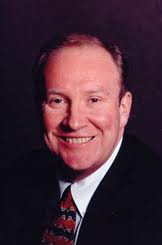 AFLC Advisory Board Member Andrew C. McCarthy discusses in his latest article in National Review the willful blindness of the Obama administration’s failure to examine the nature of the challenge against Muslim terrorism. Here’s what McCarthy had to say:
AFLC Advisory Board Member Andrew C. McCarthy discusses in his latest article in National Review the willful blindness of the Obama administration’s failure to examine the nature of the challenge against Muslim terrorism. Here’s what McCarthy had to say:
A few years back, I wrote a book called “Willful Blindness: A Memoir of the Jihad.” It was about being on the “front lines,” so to speak, of the battle against Muslim terrorism. I put “front lines” in quotes because, though the terrorists saw themselves as fighting a doctrinally ordained war of armed combat, we were treating them as mere criminals — such that our idea of a battlefield was the federal courthouse, and our idea of a commander was, well . . . me.
Misapprehending the dimension of the challenge — that it was war, not crime — was only one part of the story. The real willful blindness was government’s failure to examine the nature of the challenge. This, of course, involves the question of why things happen. To duck that question was reckless. A failure to understand the terrorists’ rationale made it impossible to grasp how pervasive the security problem was, how likely it was that additional mass-murder plots were in the offing, what kinds of targets were vulnerable, and what should be done to try to prevent attacks.
Still, things were better 20 years ago. If the book were to be written about today’s counterterrorism approach, I’d have to call it Compulsory Blindness: A Surrender to Violent Extremism.
See, however wayward our approach in the Nineties may have been, it was still possible to tell the truth, to fashion an accurate depiction of the phenomenon. To be sure, in the Clinton years, there was plenty of feel-good “Religion of Peace” drivel coming out of the White House, the State Department, and Main Justice. But back then, willful blindness was the familiar, tacit kind of conscious avoidance: Officials who should have known better passively avoided learning basic, uncomfortable facts. For the most part, though, they did not affirmatively obstruct those who were more industrious.
No one, for example, stopped me from eliciting sworn testimony from FBI agents and other experts that the concept of “jihad” stemmed from classical Islamic doctrine, and that its original meaning involved armed combat against unbelievers in order to fulfill the divine injunction to spread Islam. Regardless of what the politicians were saying in Washington, no one tried to stop us, in our New York courtroom, from proving that the terrorists had been animated by a supremacist ideology that was firmly rooted in Islamic scripture. No one prevented me from pointing out to the jury that the Blind Sheikh (Omar Abdel Rahman), whose various physical maladies rendered him unable to carry out terrorist acts, was nevertheless empowered to command the terrorist organization, solely because of his mastery of Islamic jurisprudence.
I marched into the courtroom every day for nine months and proved that there was an undeniable nexus between Islamic doctrine and terrorism committed by Muslims. The Blind Sheikh, the jury was allowed to learn, was not a fringe lunatic; he was a globally renowned scholar of sharia whose influence over a spate of international jihadist organizations was based on his doctorate from al-Azhar University, the world’s most influential center of Islamic thought. And when I demonstrated the straight-line, undeniable logic of the evidence — that scripture informed the Blind Sheikh’s directives; that those directives informed his terrorist subordinates; and that those subordinates then committed atrocities — the government gave me the Justice Department’s highest award.
Today, I’d be ostracized. No longer is the government content to be willfully blind. Today, it is defiantly, coercively, extortionately blind.
